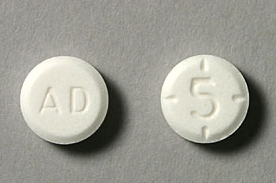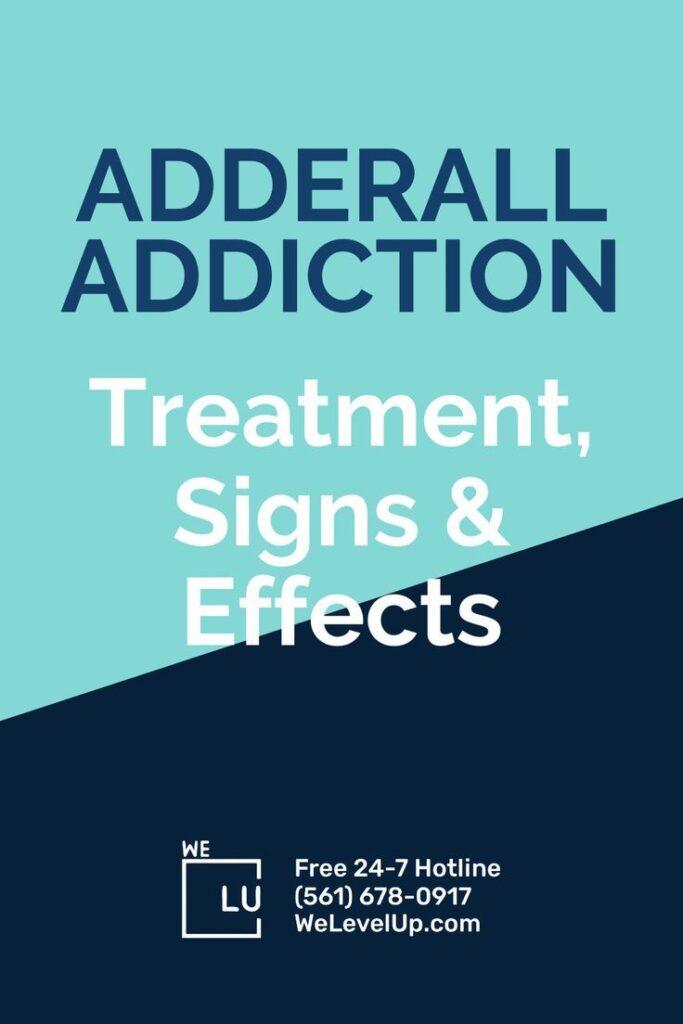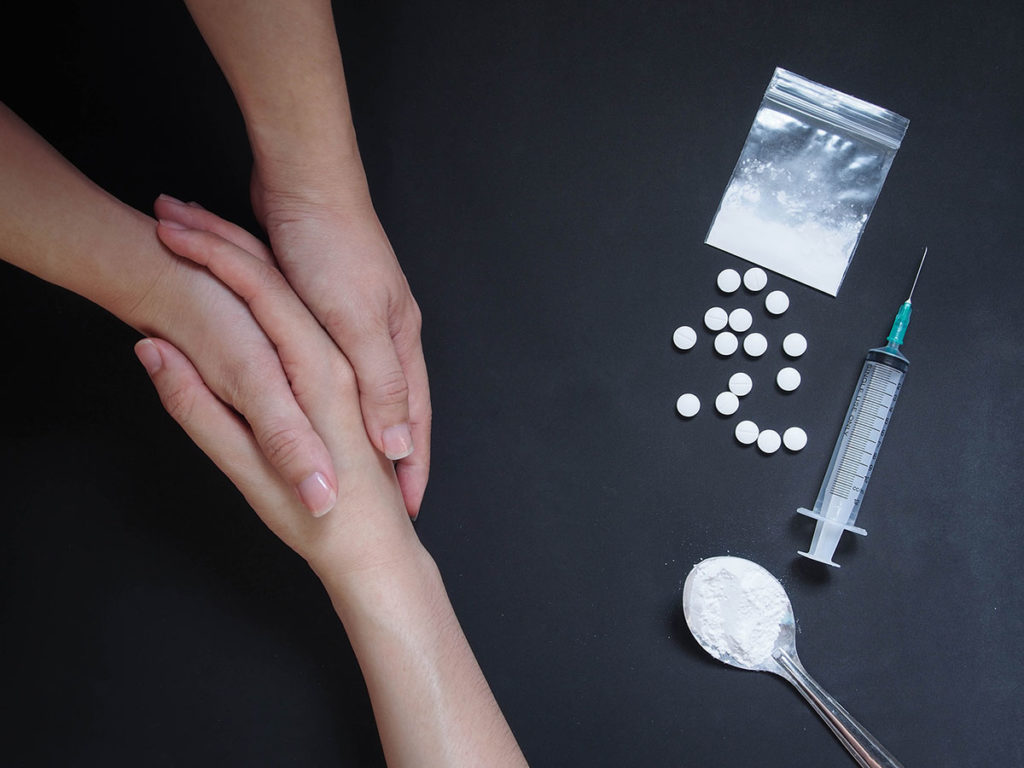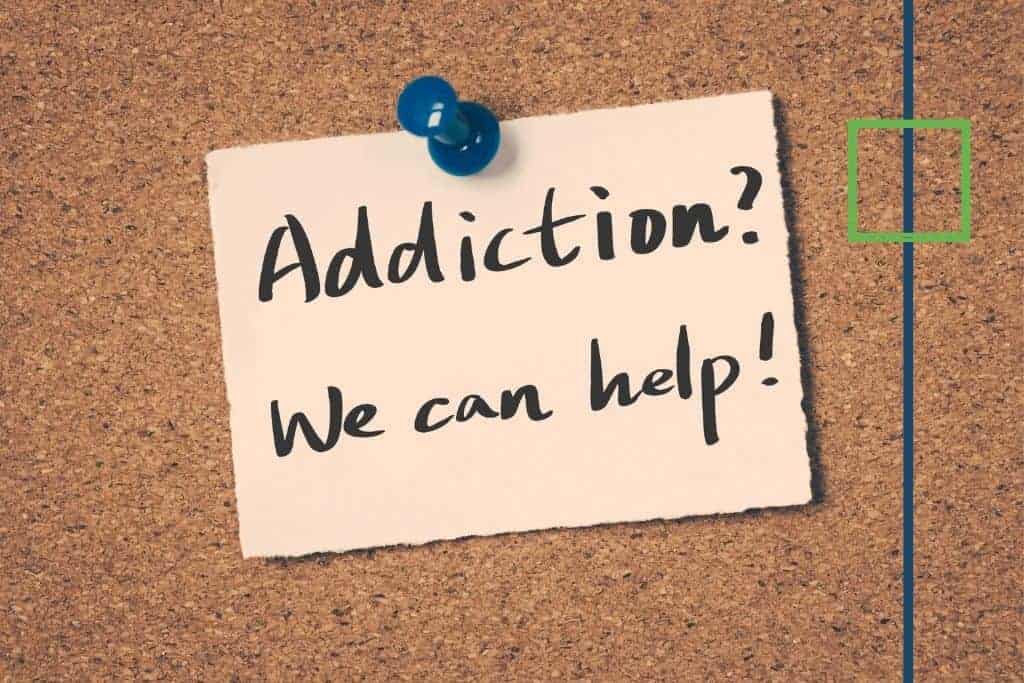Can Adderall Cause Depression?
Adderall addiction signs can include physiological and psychological dependence on the drug. When individuals become addicted to being high on Adderall, they will begin to feel as if they require it to feel alert and productive. Continue to read more to learn why Adderall is addictive.
By We Level Up | Editor Yamilla Francese | Clinically Reviewed By Lauren Barry, LMFT, MCAP, QS, Director of Quality Assurance | Editorial Policy | Research Policy | Last Updated: April 21, 2023
Is Adderall Addictive?
As ADHD diagnoses increase, so too do the prescriptions for Adderall. Unfortunately, many people are unaware of how addictive and dangerous it can be if abused; statistics show that in 2016 it was one of the most commonly misused drugs in America. It is crucial to understand the potential risks associated with using or abusing this medication and learn measures for harm reduction when Addarall addiction occurs.
Yes. Adderall is addictive. One of the most conspicuous addictive to Adderall symptoms is taking higher doses of the medication than prescribed. Individuals who developed tolerance to the drug may also take it more frequently than directed due to physical dependency.
In the US and internationally, under the Convention on Psychotropic Substances, amphetamines, including Adderall, are classified as Schedule II drugs. Schedule II substances have an accepted medical use but are tightly monitored due to potential abuse that can lead to severe psychological and physiological dependency. Amphetamine stimulants have been used medically since early in the twentieth century, but they have a high abuse possibility and can be neurotoxic. They have long been used effectively for ADHD treatment (attention-deficit hyperactivity disorder) in young populations. But currently, amphetamines are increasingly prescribed as ADHD maintenance therapy and for treating narcolepsy in adults.
What Is Adderall Used For?
Adderall is prescribed to treat attention deficit hyperactivity disorder and narcolepsy (sleep disorder). This stimulant increases dopamine and norepinephrine levels in the central nervous system. It’s an addictive stimulant with effects similar to meth. Not everyone who uses this medication will develop an addiction, but individuals who regularly take it and have higher doses are at higher risk of addiction to Adderall symptoms.
Adderall Addiction Side Effects
Stimulant addiction can cause rapid weight loss, seizures, hallucinations, and potentially-fatal heart problems. Recovery professionals recommend beginning the first phase of treatment in a supervised facility. This will start with undergoing medical detox and substance use disorder treatment in an inpatient drug rehab.

Is Adderall Addictive For ADHD?
Yes, Adderall can be addictive for ADHD patients. While it is an effective medication for managing the symptoms of ADHD, it also has the potential for abuse and addiction. Individuals who take it in larger doses than prescribed or use it for non-medical purposes are at a higher risk of developing substance use disorder with stimulants.
Tips To Avoid Adderall Addiction ADHD
How to not get addicted to Adderall? If you have concerns about the potential addiction or misuse of Adderall, talk to your doctor or healthcare provider. They can help you understand the risks and benefits of the medication and provide guidance on how to use it safely and effectively. The following are the tips on how to avoid Adderall addictions:
- Take your medication precisely as your doctor prescribes. Do not consume more than the prescribed dosage or more frequently than recommended.
- Do not share your medication with others, even if they have similar symptoms. Taking Adderall without a prescription can be dangerous and increase the risk of addiction.
- If you have concerns about the potential addiction or misuse of amphetamine stimulants, talk to your doctor or healthcare provider. They can help you understand the risks and benefits of the medication and provide guidance on how to use it safely and effectively.
- Please keep track of your use of Adderall and how it affects you. If you notice any adverse side effects or changes in behavior, talk to your doctor.
- Take breaks from Adderall use when possible to help prevent tolerance and dependence.
- If you struggle with addiction or dependence on Adderall, seek help from an accredited addiction medical professional or specialist. They can guide how to stop using the drug and support your recovery safely.
- Avoid using alcohol or other drugs while taking Adderall. This can increase the risk of addiction and other adverse side effects.

Skip To:
Learn More:
Adderall (Amphetamine and Dextroamphetamine) Drug Facts
Pronunciation: ADD-ur-all
Generic Name: Amphetamine and Dextroamphetamine
Brand Names: Adderall, Adderall XR, Mydayis
Drug Class: CNS Stimulants
Adderall, a potent central nervous system (CNS) stimulant, is the most commonly prescribed amphetamine. Amphetamine is a powerful stimulant for the CNS. It is a prescription medication for ADHD and narcolepsy but is also highly addictive, with a history of abuse. [1] Adderall tablets or capsules are often crushed and snorted for a more rapid “high.” Crushing and then snorting Adderall medication bypasses how the drug should be slowly released in doses over a set period. [2] What happens when you snort Adderall? It sends the entire amount of the drug into the bloodstream at once.
Why is adderall addictive? The central nervous system’s dopamine and norepinephrine levels are raised with stimulants. Norepinephrine affects how the brain reacts to things, primarily how well it concentrates and responds quickly to external stimuli. The “feel-good” neurotransmitter dopamine in the body produces a rewarding impact. Dopamine is a naturally occurring substance, yet medications like Adderall cause abnormally high levels of it. Users may return for more as a result of this.
Alcohol and Adderall Addiction
Non-prescription Adderall usage is so common on college campuses that students use dangerously high doses to prepare for a test or stay up all night writing a paper. Unfortunately, many of them also mix it with other substances. Mixing Adderall with alcohol has been an increasingly widespread habit among college students in recent years. Many people who do not have ADHD may take Adderall recreationally with alcohol for the stimulant-related benefits of greater exhilaration and energy, which also suppresses the adverse effects of alcohol and can result in alcohol poisoning. [3]
There are concerns about Adderall becoming a party drug. Party drugs or rave energy pills are psychoactive drugs used primarily for recreational purposes. Recreational use of Adderall can quickly progress to substance use disorder, and quitting the drug can be brutal and often leads to addicted to adderall symptoms of withdrawal.

Get Your Life Back
Find Hope & Recovery. Get Safe Comfortable Detox, Addiction Rehab & Dual Diagnosis High-Quality Care.
Hotline(844) 597-1011Adderall Addiction Rates Statistics
Because the frequency of prescriptions for amphetamines has grown several-fold over the past decade, an amphetamine-containing formulation is the most typically prescribed stimulant in North America. It is essential to know that amphetamines are the most abused prescription medications.
5 Million
In 2020, roughly five million individuals abused prescription stimulants, including Adderall.
Source: NIMH
16 Million
In 2012, there were estimated 16 million prescriptions for Adderall written for adults.
Source: NIMH
60%
Hopkins researchers found that 60 percent of individuals who used Adderall for non-medical purposes were between 18 and 25.
Source: NIMH
Adderall Addiction Signs
When a person takes Adderall, mainly if they’re not prescribed the drug or take a higher dose than what they’re advised, it gives them a sense of fleeting well-being and makes them very active. After taking Adderall, individuals will often feel as if they’re confident and empowered, and they will become very chatty.
However, people on Adderall may experience physical symptoms, including a headache, dry mouth, a hoarse voice, nausea, digestive problems, and diarrhea or constipation. It’s also known to reduce or eliminate the user’s appetite, which is why people use it. Moreover, a big red flag for regularly using Adderall is rapid weight loss. Consequently, an Adderall addict’s brain depends on the drug to increase alertness and productivity. Users frequently experience fatigue and mental fog when they aren’t taking Adderall.
The following Adderall addiction withdrawal symptoms are a clear indication of an addiction:
- Larger dosages are required to feel the effects of the medication.
- Wishing to reduce consumption yet without the ability to do so.
- Taking medication while knowing that it is harmful.
- Being unable to do a job without Adderall.
- Spending vast amounts of time and money acquiring, using, and recuperating from the substance.
- Being unable to feel alert in the absence of Adderall.
- Neglecting other routine or necessary activities to use Adderall.
Many Adderall addiction stories tell that these signs make users prioritize the drug over everything else soon. Unfortunately, the withdrawal symptoms caused by abusing stimulants make it hard for users to quit independently.

Adderall Addiction Symptoms
Can someone with ADHD get addicted to Adderall? Yes. Adderall is classified as a Schedule II drug under federal regulation because of the significant potential for abuse. No one intends to become dependent on Adderall. Usually, the risk increases productivity on a stressful day at work or to study for an important test. Some people even fake attention deficit hyperactivity disorder (ADHD) symptoms to get their prescription for the drug.
Stimulant addiction can have a range of symptoms that can vary depending on the severity of the drug use and the specific type of stimulant being used. The following symptoms of Adderall addiction are indications that you or someone you’re concerned with needs to help to recover from drug use disorder:
- Increased tolerance: Over time, a person may need to take more significant amounts of the drug to achieve the same effect.
- Withdrawal symptoms: When an individual stops taking the drug, they may experience fatigue, depression, anxiety, irritability, and intense cravings.
- Compulsive use: Despite negative consequences, a person with a stimulant addiction may continue to use the drug.
- Social or occupational dysfunction: The person’s use of stimulants may interfere with their ability to function normally, such as performing work or maintaining relationships.
- Physical symptoms: Stimulant use can cause physical symptoms such as increased heart rate, high blood pressure, dilated pupils, sweating, and muscle tension.
- Behavioral changes: A person with a stimulant addiction may become more impulsive, agitated, or aggressive.
- Financial difficulties: A person may spend excessive money on the drug, leading to financial problems.
If you or someone you know is showing or experiencing these symptoms, it may be a sign of stimulant addiction, and it is crucial to seek help from a healthcare professional.
Top 3 How Addictive is Adderall? FAQs
-
Is Adderall addictive or habit forming?
Adderall is both addictive and habit forming. It can also cause physical dependency due to tolerance. Prolonged use can make you at risk. Over time, a person may need to take more significant amounts of Adderall to achieve the same effect.
-
What does Adderall addiction look like?
The person’s use of Adderall may interfere with their ability to function normally, such as performing work or maintaining relationships. Adderall use can also cause physical symptoms such as increased dilated pupils, sweating, heart rate, high blood pressure, and muscle tension.
-
How long does it take to get addicted to Adderall?
Can you get addicted to Adderall in a week? The duration it takes to become addicted to Adderall can vary depending on factors such as the individual’s biology, the dosage, frequency, and duration of use, and whether they have a personal or family history of addiction. Generally, Adderall addiction can develop quickly, primarily when the drug is used in ways other than prescribed, such as snorting, injecting, or taking larger doses than prescribed. When Adderall is used as advised, addiction is less common, but it can still occur over time.
Get Help. Get Better. Get Your Life Back.
Searching for Accredited Drug and Alcohol Rehab Centers Near You?
Even if you have failed previously and relapsed, or are in the middle of a difficult crisis, we stand ready to support you. Our trusted behavioral health specialists will not give up on you. When you feel ready or just want someone to speak to about therapy alternatives to change your life call us. Even if we cannot assist you, we will lead you to wherever you can get support. There is no obligation. Call our hotline today.
(844) 597-1011Negative Effects of Adderall
What does Adderall do to your brain? To experience Adderall’s stimulant effects, some people willfully abuse the medication. They might use it to increase their mental performance or study all night. The drug Adderall is prescribed as a pill. To intensify its effects, some users snort or inject it.

How does Adderall work in the brain? Norepinephrine influences how the brain responds to circumstances, specifically how it pays attention and reacts to outside stimuli. Dopamine, the body’s “feel-good” chemical, creates a rewarding effect. Although dopamine occurs naturally, drugs like Adderall produce unnaturally high levels. This can cause users to come back for more. Taking psychoactive drugs like Adderall and mixing them with alcohol or other drugs poses a significant risk. Not only is mixing Adderall and alcohol terrible, but it’s also deadly.
Because Adderall is a stimulant, it also intrudes on sleep schedules, so the person consuming it may stay awake for days and then “crash” and sleep for extended periods. When someone is on Adderall and comes off the drug, they often seem lethargic and depressed. They may not be interested in doing anything and tend to be disassociated from the people and events around them.
Adderall addiction signs can include physiological and psychological dependence on the drug. When individuals become addicted to being high on Adderall, they will begin to feel as if they require it to feel alert and productive. Conversely, when someone addicted to this drug doesn’t take it, it can make them think foggy or tired, also described as Adderall brain fog.
The following are some of the stimulants’ addiction effects that may be experienced right after Adderall abuse:
- Shortness of breath.
- Fatigue.
- Dry mouth.
- Reduced sex drive.
- Peeling skin.
- Pounding heartbeat.
- Dizziness.
- Shortness of breath.
- Reduced sex drive.
- Chest pain.
- Sleeping difficulties.
- Exhaustion.
- Weight loss.
- A decline in personal hygiene.
- Lack of appetite.
- Headaches.
- Fast-talking.
- Nausea.
- Upset stomach.
- Malnutrition.
- Restlessness.
- Pounding heartbeat.
Adderall Abuse “Doctor Shopping“
The fact that Adderall is a prescription drug means that someone can “doctor shop” to get a high volume of it. To avoid being caught, drug abusers frequently fill their prescriptions at various pharmacies. One clear symptom of abuse is when friends and family members discover prescription bottles from several doctors and pharmacies. “Doctor shopping” means going to several pharmacies to fill Adderall prescriptions.
The longer a person abuses Adderall, the higher the chance of experiencing Adderall’s side effects, some of which are permanent and irreversible neurotoxicity. It is psychosis and schizophrenia-like symptoms of paranoid delusions and hallucinations (a persistent mental illness requiring a lifetime of treatment). The following list includes the most significant psychological side effects of extended abuse:
- Mania.
- Depression.
- Anxiety.
- Suicidal thoughts.
- Aggression.
- Memory loss.
- Incomplete thoughts.
- Disorientation.
Who’s At Risk For An Adderall Addiction?
Why do people abuse Adderall? Most Adderall abusers desire stimulation, long-lasting wakefulness, improved focus, increased energy, or weight loss. People who fit the following descriptions are more susceptible to becoming addicted to Adderall:
- Students.
- Athletes.
- Those wanting to lose weight.
- Those with eating disorders like anorexia.
- Those with demanding occupations.
- Those with a history of drug use.
Several additional drugs and Adderall may interact negatively. If you additionally take any of the following medicines, you run an increased chance of developing an Adderall addiction:
- Medications for soreness, decongestants, and antidepressants.
- Antacids.
- Anti-epileptic drugs.
- Clotting agents.
- Lithium.
- Blood pressure medicine.
Adderall And Pregnancy
Pregnant women should refrain from taking Adderall. Despite the lack of evidence, studies on pregnant animals show that using any amphetamine while pregnant is dangerous. Methamphetamine and other illicit amphetamines can cause low birth weight, early birth, physical injury to fetuses and newborns, and withdrawal symptoms after delivery. All of these chemicals enhance the risk of neonatal death.
Long Term Effects Of Adderall
There are Adderall addiction signs that may be visible to people, such as the sense of excitability and talkativeness the individual shows. There are also long-term effects of Adderall abuse that may happen. These can usually become even more harmful, including numbness or weakness in extremities, vision problems, chest pain, peeling or blistering skin, and mental problems such as paranoia, mania, or seizures.
Eventually, with regular Adderall, individuals will experience withdrawal symptoms if they don’t take the medications. Ongoing use of Adderall can lead to chemical imbalances in the brain. Signs someone is experiencing withdrawal from Adderall may include irritability, lack of energy, anger, headaches, constipation, and insomnia.
As with many other substances, lifestyle indicators could indicate someone is on Adderall. As people’s dependency on this drug increases, it might become their priority. What might have started as a way to excel in school or at work can lead the individual to renounce interest in these areas and display dropping performance. The abuse of Adderall can also lead to relationship crises, poor health overall, and financial and legal problems. Other long-term effects of Adderall addiction can include the following:
- Heart problems.
- Mental health problems.
- Slowed growth.
- Sexual side effects.
- Dementia.

First-class Facilities & Amenities
World-class High-Quality Addiction & Mental Health Rehabilitation Treatment
Rehab Centers TourRenowned Addiction Centers. Serene Private Facilities. Inpatient rehab programs vary.
Addiction Helpline(844) 597-1011Proven recovery success experience, backed by a Team w/ History of:
15+
Years of Unified Experience
100s
5-Star Reviews Across Our Centers
10K
Recovery Success Stories Across Our Network
- Low Patient to Therapist Ratio
- Onsite Medical Detox Center
- Comprehensive Dual-Diagnosis Treatment
- Complimentary Family & Alumni Programs
- Coaching, Recovery & Personal Development Events
Adderall Dependence Vs. Adderall Addiction
Adderall dependency is an expected and anticipated physiological response to the substance. The individual has physical support due to the interaction of the chemicals in the body (even if taken as prescribed), but not psychological dependence in which they abuse the medication to achieve a “high.” They may require medical assistance to get off the drug due to how the chemicals affect the brain, but they are not mentally obsessing or craving Adderall.
Adderall addiction is a person’s physical and psychological dependence on Adderall and particular behaviors. When these people stop using Adderall, they typically can’t cope and will go to any extent to acquire more drugs. The individual’s primary focus becomes the drug’s usage since they frequently run out of their prescription early due to taking more than prescribed, resulting in withdrawal from the substance, which results in going to any extent to get more of the sensation. Adderall obsession and cravings are also indicators of addictive behavior.

Can You Overdose On Adderall?
How long does it take to become addicted to Adderall? It’s important to note that everyone’s body is different, and some people may overdose or become addicted to a relatively tiny quantity of this medicine. People with pre-existing cardiac issues are more likely to overdose on Adderall. Individuals are consuming Adderall on binges to extend the duration of the effects. This frequently leads to a person not sleeping for a long time. As more of the drug enters a person’s system, they may be on the verge of an overdose.
After using Adderall for a period, a person may lose the euphoric sensation that the medication formerly produced. This tolerance may cause individuals to consume more medicine in significant amounts, dramatically increasing the danger of overdose. Adderall by itself is harmful. But many recreational drug users combine it with additional substances (polydrug usage) to boost the euphoric effects. This increases the likelihood of Adderall overdose and addiction.
Adderall Overdose Symptoms
Overdoses of Adderall can result in unconsciousness, severe organ damage, and death. Toxic quantities of the chemical can develop in the bloodstream when a person’s body strives to keep up with the number of medicines ingested. When the body is overburdened in this manner, vital organs typically bear the brunt of the harm. This high chemical overflow can induce kidney and liver failure with an Adderall overdose.
The stress placed on the central nervous system, particularly the cardiovascular system, can result in a heart attack, stroke, or hyperthermia. Hyperthermia occurs when the body’s temperature increases significantly above average. This can result in unconsciousness and long-term brain damage. Even if a person recovers from an overdose, the damage to their brain may change their life permanently. An Adderall overdose can also induce internal bleeding within the skull, which can cause one-sided paralysis, disorientation, and loss of consciousness.
Signs Of Adderall Overdose
- Chest pain.
- Nausea or vomiting.
- Fast breathing.
- Fast breathing.
- Uncontrollable shaking.
- Fainting.
Adderall Addiction Rehab Diagnosis
Make an appointment with your doctor if you’ve discovered that your Adderall use increases dose requirements (tolerance) or makes you feel awful after you stop taking it (withdrawal). Your doctor will first gather your medical history during your session. They’ll enquire about your Adderall consumption, including the dosage and frequency of your doses. What other medications you are taking will also be a question for your doctor. Supplements, vitamins, and over-the-counter medications are included.
Your doctor will also inquire about your symptoms after the benefits of Adderall wear off. They might also do a physical examination and take your blood pressure and heart rate readings. Your doctor will probably use the most current diagnostic criteria from the (DSM-5th Edition) Diagnostic and Statistical Manual of Mental Disorders to make an official diagnosis. Suppose your doctor finds that you have an Adderall addiction. In that case, they can suggest that you go to a detox clinic or rehabilitation facility to get treatment for Adderall addiction.
World-class, Accredited, 5-Star Reviewed, Effective Addiction & Mental Health Programs. Complete Behavioral Health Inpatient Rehab, Detox plus Co-occuring Disorders Therapy.
CALL(844) 597-1011End the Addiction Pain. End the Emotional Rollercoaster. Get Your Life Back. Start Drug, Alcohol & Dual Diagnosis Mental Health Treatment Now. Get Free No-obligation Guidance by Substance Abuse Specialists Who Understand Addiction & Mental Health Recovery & Know How to Help.
Adderall Addiction Treatment Options
Can you become addicted to Adderall? Yes. Fortunately, many Adderall addiction recovery therapy options are available to help the person stop taking Adderall and avoid serious side effects from substance abuse. Many Adderall users respond well to residential rehab programs. If you are experiencing Adderall addiction, getting an accurate assessment of all the symptoms is critical. When a mental healthcare professional has evaluated the signs and symptoms, it may be determined that another form of mental illness is present and needs a particular type of treatment.
Medically-Assisted Detox
Medical detox is frequently seen as the initial stage of treatment for adderall addiction. It will assist you in navigating the complex Adderall addiction withdrawal process but will not address habits of thinking and behavior contributing to drug usage. After coming off adderall addiction through detoxification, several treatment techniques and venues can assist in offering the continuing support needed to sustain long-term sobriety.
Cravings are typical during detox and can be challenging to overcome while recovering from adderall addiction. This frequently leads to relapse. Continual medical care offered throughout inpatient therapy aids in the prevention of recurrence. Doctors can provide essential medicines and medical skills to reduce cravings and withdrawal symptoms.
Psychotherapy
Several different modalities of psychotherapy have been used in the treatment of mental health disorders along with addiction, including the following:
- Cognitive Behavioral Therapy (CBT) – CBT is an effective talk therapy that involves changing the patterns of negative thoughts and the behavioral routines affecting a person struggling with mental health conditions.
- Dialectical Behavioral Therapy – DBT is a comprehensive mental health and substance abuse treatment program whose ultimate goal is to aid patients in their efforts to build a life worth living. The primary purpose of DBT is to help a person develop what is referred to as a “clear mind.”
- Person-Centered Therapy – This strategy allows and motivates clients to comprehend and resolve their concerns in a safe, supportive setting.
- Solution Focused Therapy – A therapy that encourages solutions that can be quickly executed with a simple first step leading to further positive results.
Dual Diagnosis Treatment
Drug misuses and mental health concerns, such as Adderall dosing and ADHD, frequently coexist. Dual-diagnosis rehabilitation addresses each of these difficulties concurrently. An integrated system is the best technique for treating dual diagnosis. This technique addresses both the drug misuse problem and the mental condition at the same time. Regardless of which diagnosis occurred first (mental health or drug misuse problem), long-term recovery will mostly depend on treatment for both conditions by the same team or practitioner.
Medication-Assisted Treatments
Medication-assisted treatment (MAT) for drug use disorders and mental health issues is frequently utilized in tandem. This involves the administration of drugs as well as other medical treatments. Throughout your recovery, your treatment facility’s professionals will assist you in determining what caused your addiction. They will teach you tools to help you modify your behavior patterns and confront the negative thoughts that contributed to your addiction. Sometimes the stresses and troubles in your life cause you to turn to drugs to help you temporarily forget about them.
Can you be addicted to Adderall if you have ADHD? Unfortunately, yes. Contact one of our helpful treatment professionals immediately if you or a loved one you’re concerned with is battling long-term drug usage and a co-occurring mental health problem such as ADHD or sleeping problem. We can give information about dual diagnosis and detox programs that may suit you.

Examples of Denial In Addiction/Substance Abuse Video
“Denial is a huge part of the disease of addiction.”
Lexi’s Addiction Recovery Testimonial
“I don’t use every day. I’m not even sick. I’m not even experiencing withdrawal symptoms. I’m still successful. I still have money in the bank. I still have my family in my life. I still love my house.”
These are all common examples of the denial that we experience through the disease of addiction. Denial is a huge part of the disease of addiction, and the way that we get our clients to realize that they are addicts and alcoholics is through the assignment. The goodbye letter seeing the the patterns of the behaviors that they they display when they’re using, seeing the consequences of their actions.”
“Whether they want to realize them or not, when they write it down, it becomes real. When they speak those words to us, it becomes real to them. It’s pen and paper. It’s their words that they’re reading back to themselves. They can see the power that the disease has over their lives, and they can no longer say that I’m not an addict. I’m not an alcoholic, and there’s power in that, and there’s a breakthrough.”
Experience Transformative Recovery at We Level Up Treatment Centers.
See our authentic success stories. Get inspired. Get the help you deserve.
Start a New Life
Begin with a free call to an addiction & behavioral health treatment advisor. Learn more about our dual-diagnosis programs. The We Level Up Treatment Center Network delivers recovery programs that vary by each treatment facility. Call to learn more.
- Personalized Care
- Caring Accountable Staff
- World-class Amenities
- Licensed & Accredited
- Renowned w/ 100s 5-Star Reviews
We’ll Call You
Search We Level Up Adderall Detox, Mental Health Topics & Resources
Sources:
[1] Belujon P, Jakobowski NL, Dollish HK, Grace AA. Withdrawal from Acute Amphetamine Induces an Amygdala-Driven Attenuation of Dopamine Neuron Activity: Reversal by Ketamine. Neuropsychopharmacology. 2016 Jan;41(2):619-27. DOI: 10.1038/npp.2015.191. Epub 2015 Jul 1. PMID: 26129677; PMCID: PMC5130137.
[2] ADDERALL® (CII) – Food & Drug Administration (FDA)
Magnus W, Nazir S, Anilkumar AC, et al. Attention Deficit Hyperactivity Disorder. [Updated 2023 Jan 21]. In: StatPearls [Internet]. Treasure Island (FL): StatPearls Publishing; 2023 Jan-. Available from: https://www.ncbi.nlm.nih.gov/books/NBK441838/
[3] NIDA. Prescription Stimulants DrugFacts. National Institute on Drug Abuse website. http://nida.nih.gov/publications/drugfacts/prescription-stimulants. June 6, 2018, Accessed April 1, 2023.
[4] Weyandt LL, White TL, Gudmundsdottir BG, Nitenson AZ, Rathkey ES, De Leon KA, Bjorn SA. Neurocognitive, Autonomic, and Mood Effects of Adderall: A Pilot Study of Healthy College Students. Pharmacy (Basel). 2018 Jun 27;6(3):58. DOI: 10.3390/pharmacy6030058. PMID: 29954141; PMCID: PMC6165228.
[5] Farrell M, Martin NK, Stockings E, Bórquez A, Cepeda JA, Degenhardt L, Ali R, Tran LT, Rehm J, Torrens M, Shoptaw S, McKetin R. Responding to global stimulant use: challenges and opportunities. Lancet. 2019 Nov 2;394(10209):1652-1667. DOI: 10.1016/S0140-6736(19)32230-5. Epub 2019 Oct 23. Erratum in: Lancet. 2019 Nov 16;394(10211):1806. PMID: 31668409; PMCID: PMC6924572.
[6] Farzam K, Faizy RM, Saadabadi A. Stimulants. 2023 Feb 13. In: StatPearls [Internet]. Treasure Island (FL): StatPearls Publishing; 2023 Jan–. PMID: 30969718.
[7] National Survey on Drug Use and Health (NSDUH) – Substance Abuse and Mental Health Services Administration (SAMHSA)
[8] McKay JR. Impact of Continuing Care on Recovery From Substance Use Disorder. Alcohol Res. 2021 Jan 21;41(1):01. DOI: 10.35946 PMID: 33500871; PMCID: PMC7813220.
[9] Fluyau D, Charlton TE. Drug Addiction. [Updated 2022 Aug 29]. In: StatPearls [Internet]. Treasure Island (FL): StatPearls Publishing; 2022 Jan-. Available from: https://www.ncbi.nlm.nih.gov/books/NBK549783/
[10] Justinova Z, Panlilio LV, Goldberg SR. Drug addiction. Curr Top Behav Neurosci. 2009;1:309-46. DOI: 10.1007/978-3-540-88955-7_13. PMID: 21104390; PMCID: PMC3039293.
Brown KA, Samuel S, Patel DR. Pharmacologic management of attention deficit hyperactivity disorder in children and adolescents: a review for practitioners. Transl Pediatr. 2018 Jan;7(1):36-47. DOI: 10.21037/tp.2017.08.02. PMID: 29441281; PMCID: PMC5803014.


